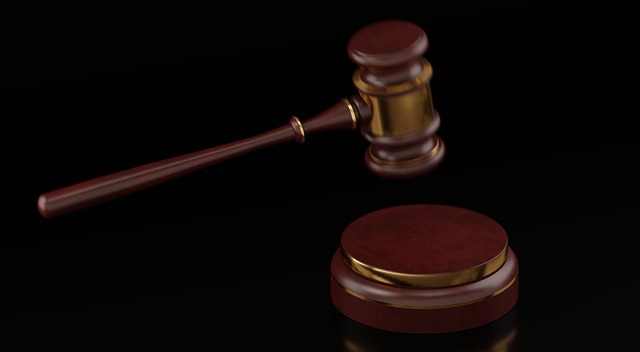C-Level Investigations are thorough probes into high-ranking executives for suspected misconduct, crucial for corporate accountability. Joining a class action lawsuit is a strategic way to advocate rights in complex cases with significant stakes, leveraging shared resources and legal expertise. To effectively join such a lawsuit, individuals should gather compelling evidence, connect with reputable attorneys specializing in class action litigation, understand their rights and case strength, and stay informed throughout the process.
“Uncover the intricacies of C-Level investigations with our comprehensive guide. This article delves into the fundamental aspects, offering valuable insights for individuals facing such inquiries. We explore why joining a class action lawsuit can be a powerful step, highlighting its benefits and potential impact. Additionally, we provide practical steps to join a class action lawsuit and essential legal considerations to ensure your rights are protected throughout the process.”
- Understanding C-Level Investigations: Uncovering the Basics
- Why Join a Class Action Lawsuit? Benefits and Impact
- Navigating the Process: Steps to Effective Participation
- Legal Considerations and Rights During the Investigation
Understanding C-Level Investigations: Uncovering the Basics

C-Level Investigations refer to inquiries and proceedings targeting high-ranking executives and organizational leaders, often at the C-suite level (CEO, CFO, COO, etc.). These investigations are typically initiated due to suspected misconduct, fraud, or illegal activities within a company. They serve as a crucial mechanism to hold powerful individuals accountable and ensure corporate integrity. The process involves meticulous steps, from initial suspicion and fact-gathering to legal proceedings, aiming to uncover the truth and deliver justice.
Understanding the basics of C-Level Investigations is essential for anyone considering joining a class action lawsuit. These investigations traverse all stages of the investigative and enforcement process, often involving complex financial analyses, witness interviews, and extensive document reviews. Moreover, as these cases can have significant implications for both individuals and institutions, they must adhere to strict legal protocols to avoid indictment. The outcome can shape corporate governance, influence philanthropic and political communities, and serve as a deterrent for future misconduct. For those interested in participating, knowing the steps involved in joining a class action lawsuit is vital, ensuring a comprehensive understanding of one’s rights and potential contributions to these critical legal endeavors.
Why Join a Class Action Lawsuit? Benefits and Impact

Joining a class action lawsuit can be a powerful way to stand up for your rights and seek justice in high-stakes cases. Unlike individual lawsuits, which can be time-consuming and costly, class actions pool resources and expertise, enabling plaintiffs to achieve extraordinary results. By banding together, individuals with similar claims gain leverage against powerful entities, potentially resulting in complete dismissal of all charges.
This collective approach not only increases the chances of success but also ensures that each member receives a fair share of any compensation awarded. It’s an efficient strategy for holding responsible parties accountable and creating positive change on a larger scale. Whether you’re dealing with consumer fraud, employment discrimination, or environmental damage, joining a class action lawsuit can be a significant step towards justice and financial relief.
Navigating the Process: Steps to Effective Participation

Navigating a class action lawsuit, especially at the C-Level, requires strategic participation to ensure its success. The process involves several crucial steps that potential plaintiffs must understand and actively engage in. Firstly, individuals or organizations facing white collar and economic crimes should gather compelling evidence of their involvement or impact from these illicit activities. This can include financial records, emails, or any digital footprint left by the alleged wrongdoers.
Next, they must connect with reputable legal representatives who specialize in class action litigation. These attorneys will guide them through the process, helping to formulate a solid strategy. With an attorney’s support, individuals can decide whether joining a class action lawsuit is for them, considering the potential risks and rewards. This decision should be based on a thorough understanding of their rights, the strength of the case, and the reputation of the legal team, who should have an unprecedented track record in similar cases for his clients.
Legal Considerations and Rights During the Investigation

During C-Level investigations, legal considerations and rights are paramount for both corporate and individual clients. As high-stakes cases often span across the country, understanding one’s rights is crucial. The process involves careful navigation through complex laws and regulations, ensuring every step respects the constitutional rights of all involved parties.
If you’re considering joining a class action lawsuit as a result of such investigations, it’s important to take steps that protect your interests. This may include retaining legal counsel experienced in handling these matters, reviewing all documents for potential violations, and staying informed about your rights throughout the process. Remember, each case is unique, so understanding the specifics of yours is essential.
C-Level investigations offer a powerful avenue for justice, empowering individuals to join class action lawsuits and leverage their collective voice. By understanding the process, from navigating basic concepts to legal considerations, you can take significant steps towards joining these suits effectively. Remember that informed participation is key to achieving meaningful change, so follow the outlined steps to ensure a smooth and impactful journey in seeking redress through class action.






